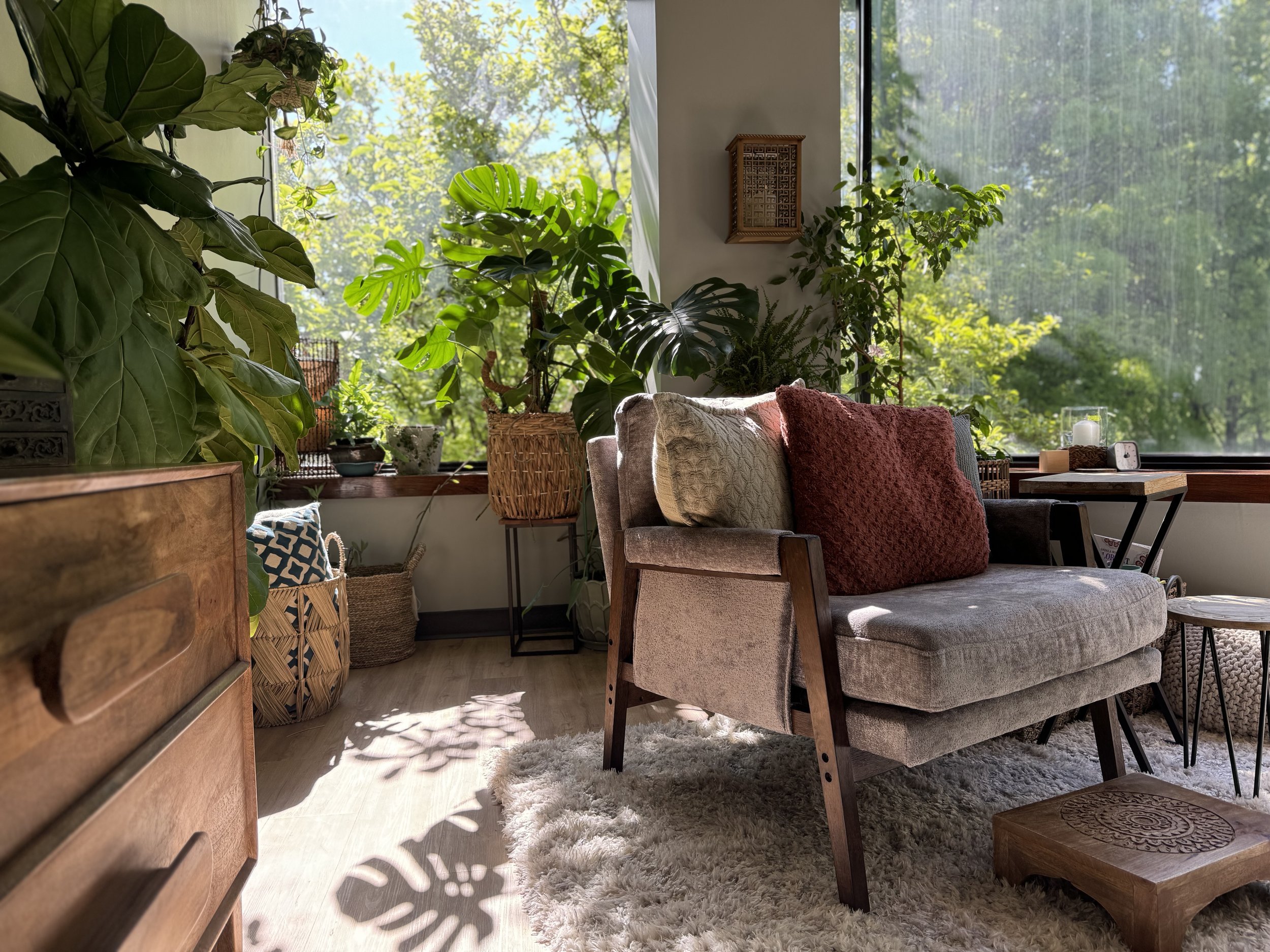
Glossary of Neurodivergent Therapy Lingo
𖥸
Disclaimer
This glossary is for educational and marketing purposes only. We hope this glossary can help you get to know us a little. We do our best to stay up to date with both research and lived-experiences in the worlds of neurodivergence and trauma, and other somatic stuff. We strive to stay up to date with the most respectful and honoring language and believe language is important, knowing we also have internalized ableism and privileges that keep us from seeing ourselves and others completely clearly. We continually strive nevertheless to understand the unique experience of the client we are sitting with and use your language, supporting your connecting with yourself, your life, and your world.
Accommodations
Resources or adjustments made to care for specific needs or to reduce barriers that might affect comfort and ease of functioning.
For autistic and ADHD individuals, these adjustments to home or working environments, or to routines and processes, can make a significant difference in overall wellbeing and satisfaction.
Digging Deeper
Examples of Accommodations in our Therapy Office for Our Neurodivergent Clients & Staff
Sensory Adjustments: Some of the sensory choices available in our office include:
weighted blankets
adjusting lighting (most of our lighting is on dimmers, and we’re always happy to close the blinds)
tons of styles of fidgets to choose from
playing with kinetic sand for grounding, centering, and fun
adjusting the temperature
multiple choices for where to sit
(there’s a fuller list on the home page)
Flexible Interaction Options: Having an affirming therapist that honors your autonomy in the therapy process is so important. Here are a few ways we prioritize that:
no pressure to make or maintain eye contact (in fact, as brainspotting therapists, it’s really important to us that you allow your eyes to float wherever they’re inclined to go, whether. you’re neurodivergent or not)
you choose what topics are discussed and what is not discussed
you choose if you need to do telehealth instead of an in-person session
with many of our therapy modalities, you don’t even have to communicate extensively - this is what makes our mind-body (somatic)-focused and other trauma-informed therapies so neat! (examples are IFS parts work, Brainspotting/EMDR, and Sandtray)
Additional Accommodations: You and your therapist can work together to find specific accommodations that work for you not just in the therapy room, but in your home and work environments, too. It’s so much more encouraging in life when our environments are supporting us instead of thwarting us.
The Impact of Accommodations on Wellbeing for Neurodivergent Folks
For autistic and ADHD individuals, accommodations are more than just conveniences—they’re essential for reducing stress and improving functioning.
When tailored to individual needs, these adjustments help in mitigating the sensory and cognitive challenges that can otherwise lead to fatigue, burnout, and a total waste of our precious executive function. Without appropriate accommodations, the risk of autistic and ADHD burnout increases.
Internalized Ableism and Barriers to Asking for Accommodations for Adult Autism & ADHD
Despite the benefits, many neurodivergent folks struggle with internalized ableism, which can prevent them from seeking the accommodations they need.
Internalized ableism occurs when individuals start to believe negative societal stereotypes about their own neurodivergent traits or when individuals believe they aren’t meant to have accommodations. This can result in:
Belief in Self-Sufficiency: Feeling like they should learn to manage without accommodations or that their needs are not valid.
Desire to Fit In: Worrying that requesting accommodations will make them stand out or seem different from others.
Uncertainty About Needs: Not knowing what accommodations might be helpful or how to articulate these needs effectively.
These internalized barriers can discourage individuals from asking for the supports they need, potentially exacerbating stress and contributing to burnout.
We’d be honored to help you connect with your needs, advocate for yourself in a way that feels safe and comfortable for you, and set your environment up to give you a leg up in life instead of throwing hurdles in your way.
Our Approach to Accommodations
Here at The Hope Preserve 🌿
Accommodations have been life-changing for us in our home environments and in our office where we see you. We absolutely love sharing the supports we’ve learned so far, and helping you find doable, practical ways to make your life more supportive to your nervous system. Feel free to ask to see some of our accommodations in action at the office (and how we build them into our processes and tech, too).
You’re invited to come be yourself with us.
We’d love to support you.
Glossary Index
Thinking of getting started?
We’d love to help you find the right fit
Use this calendar to chat with our front desk without the phone tag,
or get a same-day call/text/email back with the quick contact form.

